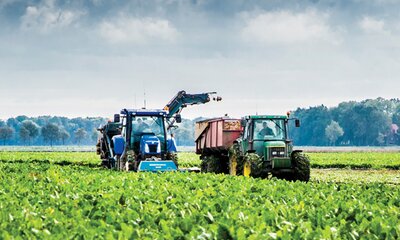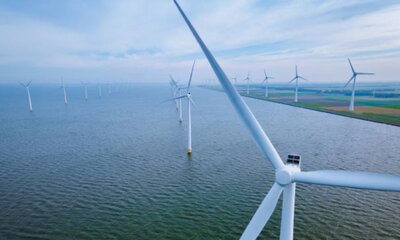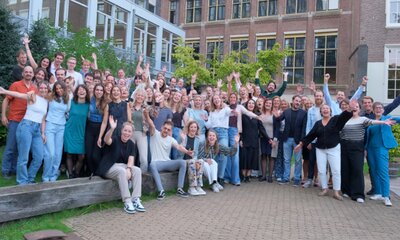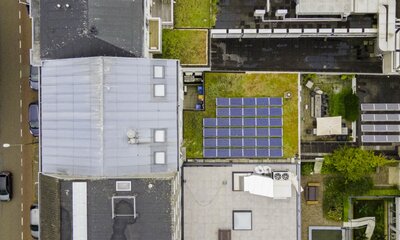Charting a Starboard Course: Centre-Right Emerges Victorious in Belgium's Elections
On June 9th, Belgians voted for European, federal, and regional representatives. The centre-right emerged victorious, with NVA leading in Flanders and Belgium, while Mouvement Réformateur and Les Engagés won in Brussels and Wallonia. The far-right Vlaams Belang gained ground but didn't win outright, and the Greens saw significant losses. Socialists Vooruit and PVDA made gains in Flanders, while PS and PTB lost ground in Wallonia. Centre-right parties are expected to form governing coalitions with ambitious reforms at the core of their programmes. The outcome provides hope for stability and business-friendly policies with ongoing commitments to health and environmental goals.
On June 9th, Belgians went to cast their votes alongside millions of other Europeans. However, their task was more complicated than most. Citizens were not only voting for their representatives in the European Parliament but also choosing their representatives for the federal and regional chambers.
The stakes were high, with predictions of a victory for the far-right party Vlaams Belang in Flanders, and the collapse of the Socialist party in Brussels and Wallonia in favour of the far-left PTB. However, the actual results did not go entirely as expected, as the centre-right political forces emerged as the winners of the day. Let's take a look at some key points.
The far-right didn't win, but neither did it lose
In the recent elections in Flanders, the far-right party Vlaams Belang (ID) didn't win, but it also didn't lose. The NVA (ECR/EFA) retained their first position with 23.9% of the votes, while Vlaams Belang received 22.7%. Although many Belgians were happy with the outcome and saw it as a defeat for the far-right, it's worth noting that Vlaams Belang actually won the European elections with 22.9% of the votes compared to NVA's 22.1%. From a socioeconomic perspective, Vlaams Belang seemed to have gained ground in rural areas by attracting the traditional CD&V voters. Some political analysts are concerned that NVA may struggle in the upcoming October local elections, potentially allowing the far-right to make gains in several municipalities.
The Greens collapse
The 2024 elections were challenging for the Greens. In Brussels and Wallonia, Ecolo (The Greens/EFA) lost an average of 10% of their votes compared to 2019, and Groen (The Greens/EFA) in Flanders lost 2.8%. The parties struggled to win over voters with their ambitious climate and environmental program. They faced though competition from centre-right parties, and the usual topics were discussed, such as the feasibility of phasing out cars in major urban areas, energy production without nuclear power, costs of reforms for citizens and businesses, food autonomy without conventional agriculture, and nitrogen plans for farmers. Ecolos were portrayed as radicalised and dogmatic. Despite this, there was a success for the Greens as the Flemish Green Party, Groen, secured the first position in the Brussels regional elections, on the Flemish Circumscription, with a 0.8% increase in votes compared to 2019 on June 9th.
Left in, Left out
The political landscape in Belgium saw some surprising shifts in the recent elections. In Flanders, the socialist party Vooruit (S&D) secured the third position with a 3.0% increase in votes, despite facing internal divisions and controversies surrounding its party leader. From the initial analysis, Vooruit saw a boost from wealthier urban areas. The far-left party in Flanders, PVDA (The Left), also gained support (+3.0% compared to 2019), driven by young people from more diverse backgrounds. Meanwhile, in Wallonia, Parti Socialiste (PS, S&D) lost its long-held position as the leading political force to another party, but not to the predicted Parti des Travailleurs de Belgique (PTB, The Left). PTB saw a slight decrease in support in Wallonia and an increase in Brussels. Both PS and PTB have announced their plans to join the opposition for the federal and regional governments. Vooruit is expected to be part of the governing coalition in Flanders with NVA and CD&V(EPP), aiming to keep the far-right and far-left parties away from power.
Right in the lead!
The recent elections in Belgium marked a significant victory for the centre-right and right-wing parties, securing comfortable majorities for them to take the lead in forming new coalition governments. In Flanders, the NVA emerged as the major political party, and given Flanders' population over Wallonia, the NVA also became the leading party in Belgium. This positions Bart De Wever, the NVA leader, at the centre of discussions for forming both the Flemish regional government and the federal government.
In an unexpected turn of events, the Mouvement Réformateur (Renew) achieved a notable victory, surpassing the PS in Brussels, Wallonia and Federal elections. Another surprise was the resurgence of Les Engagés (EPP), which is expected to bring about significant reforms in Belgium. With the centre-right parties' robust support in Wallonia and Brussels, the governing coalitions at the federal and regional levels are likely to exclude left-leaning forces.
The MR and Les Engagés have expressed their intention to govern together in Wallonia and are also expected to participate in the federal coalition with the NVA and CD&V. In Brussels, the MR and Les Engagés may need to compromise with Groen and some centre-left parties to secure a majority. Notably, George Louis-Bouchez, the MR's leader, has indicated a strong commitment to implementing his reform programs without prolonged negotiations. This could potentially lead to the end of the controversial mobility plan, "Good Move," proposed by the Greens in the previous mandate.
But not all rights are right
Even though centre-right and right political parties in Belgium experienced overall gains, one party suffered a significant defeat. Open-VLD (Renew), the liberal party of Prime Minister De Croo, was severely penalised by citizens, losing 4.8% of the vote in Flanders and 3.1% in the federal elections. Following this setback, Tom Ongena resigned as party leader, and De Croo – as expected with federal elections, from his role of Prime Minister. The future impact of this defeat is still uncertain, but the party has already announced that it will respect the votes and will not join any governing coalition.
The Impact on Health, Agriculture and Food
The main points from the MR's programme are to amend environmental and climatic laws from the previous government and to slow down the transition, cancel the "Good Move" mobility plan in Brussels, reduce public spending and tighten the rules to access state benefits, promote entrepreneurship, support the use of new technologies in health, ensure clear consumer information, fair pricing, and promote local products, foster sustainable agriculture and invest in research and innovation to improve productivity, sustainability, and access to the farming profession.
Les Engagés focuses on comprehensive health plans targeting cancer, cardiovascular diseases, rare diseases, Alzheimer's, and mental health. They aim to enhance focus on prevention, early detection, and multidisciplinary care. Additionally, they plan to improve coordination between specialized and primary care to enhance healthcare delivery and efficiency. In agriculture, their goals include banning harmful phytosanitary products by 2040, reducing imports that don't meet EU standards, and fostering innovation through research and precision farming to drive productivity and sustainability.
The N-VA advocates for a responsible and affordable healthcare system. They support sufficient investment, proposing an annual growth rate aligned with long-term economic growth. However, they criticize the inefficiency and high administrative costs due to fragmented policies and they are willing to cut back on health care to address the budget deficit. In agriculture, they prioritize sustainable farming practices to ensure fair prices for farmers while promoting biodiversity. By fostering partnerships and providing support, they encourage both small and large farms to embrace ecological sustainability. Through clearer regulations and fairer distribution of value, they aim to strengthen farmers' positions in the supply chain.
CD&V prioritises accessible, affordable healthcare and integrates health into all policy areas. They advocate for innovative workforce policies, community-focused mental health care, and proactive health management. They call for hospital financing reforms and strategic autonomy in drug supply, ensuring affordable care for all. CD&V traditionally is the party for the farmers. In agriculture, they want to empower farmers while promoting local, sustainable agriculture. This involves providing farmers with resources, land, research, and supportive policies to sustainably produce quality food and safeguard their livelihoods.
For Vooruit healthcare is one of its top priorities. They focus on quality and affordable healthcare for all. They advocate for a strong prevention policy, appropriate care for those in need, affordable healthcare, and top-quality care for everyone. In agriculture, Vooruit supports fair prices and regulatory clarity for farmers, advocating for sustainable farming practices that balance agricultural viability and environmental conservation. They promote local produce, fair market practices, and the redistribution of European agricultural subsidies to support smaller, sustainable farms.
On Monday, June 10th, the general mood in Belgium was one of relief. Many were concerned that if the far-right won in Flanders and the far-left in Wallonia, Belgium would once again set the world record for a state without a government. However, the significant victory of centre-right political forces has brought hope that coalitions can be formed in an orderly manner in the three regions and at the federal level. This shift to the right is also reassuring for businesses, as it suggests that future governments are likely to promote and support innovation in health, food, and agriculture with more business-friendly measures and less restrictive environmental and climate regulations. However, practically all parties in Belgium, except the far-right, have included ambitious measures related to health, climate change adaptation, and environmental protection in their programs. The direction may have changed, but the goals remain the same.










